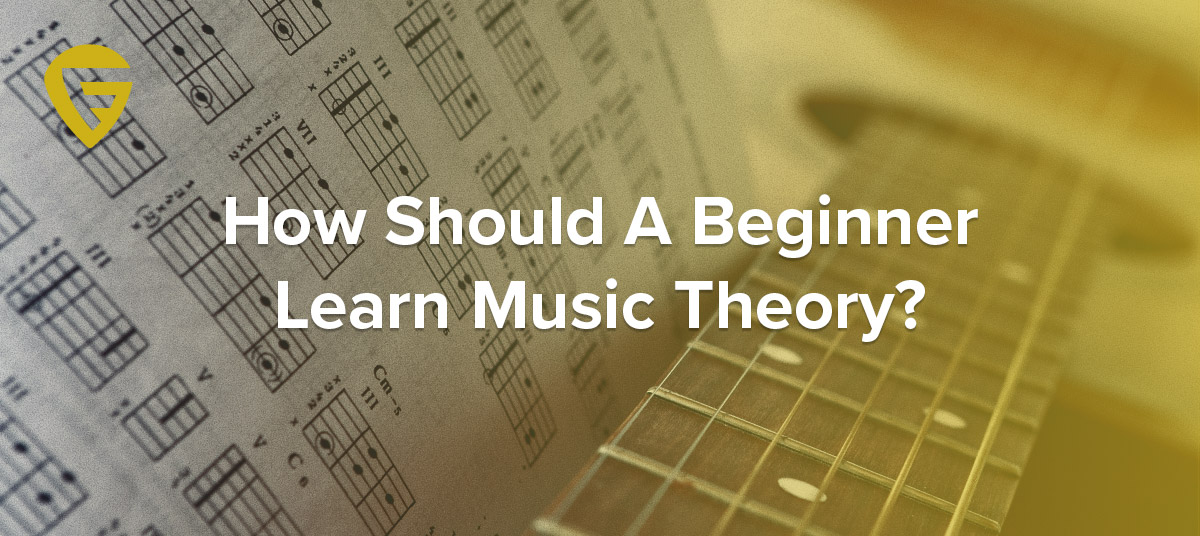- Home
- Instruments
- Gear
- Recording
- Lessons
- Reviews
- Blog

Questions, questions, and more questions. Most of these are about guitar! But a quick answer first, bananas (your welcome Donna from Cannon Beach, Oregon). Here is our question that needs a longer answer: How should a beginner learn music theory?
I personally think learning theory is very important. The more you know the better you can communicate with other musicians. Besides the best way to break the rules is to know them. I don’t believe that learning theory will make anyone less of a musician.
If you are young enough to still be in school, then take a music theory class. The hardest class that I ever took was a music theory class. I learned so much from it though. It created a base from which I could understand music so much better.
You might even want to join band or orchestra, and learn to play another instrument. This could open up your musical knowledge even further, you might even learn to read music. You know the old joke, how do you make a guitarist stop playing? Put sheet music in front of them. Sadly this is so true. The number of guitarists that I have met that can actually read music is so few and far between (I admit that I am one of them). Learning a different instrument might not seem interesting to you, which I understand I’ve only ever wanted to play guitar.
If you are older check out if any local colleges offer a music theory class. If you have the time and money it would be well spent learning theory. A music appreciation class wouldn’t be a bad idea either, if for no other reason than to broaden your horizons.
A Good Teacher
There are teachers that will show you how to play songs, which is good for getting started. Try to find a guitar teacher that knows music theory. Have them teach it to you as they show how it works on the guitar. I took classes in college that applied theory to piano, which was good, but I play guitar. I knew where middle C was on the keyboard, but not the fretboard (I have since figured it out).
If that teacher can also teach you how to read music all the better. I might even suggest you learn how to play classical guitar. You will learn new techniques that you can translate to most any other music that you will be playing. Also, learn some jazz to get to know those great chords.
If you play with mostly rock musicians you will find that most theory will go over their heads (sorry to make a generalization, but I have found it to be very true over the years). Then there was the first band I was in where everyone came from a background where they knew theory. I learned by osmosis, but it also drove me to take classes to catch up.
If you are so inclined there are plenty of books out there to learn from. Many of the beginner books for guitar will give you a nice base. I’ve never found this to be the best way to learn for myself. The problem with beginner guitar books is that they are full of beginner music. I’m not really interested in learning how to play “Mary had a Little Lamb,” which is funny to play every once in a while but not really set worthy.
The biggest problem with learning out of a book is that there is not the accountability that comes from a class or from a teacher. Some people thrive learning on their own, and others (like me) lose interest after a week or less.
Apply what you learn. Figure out how the song your learning works. Whether it is from the arrangement to the components of the chords to the progression. Figure out why some things work, and how you can use them to your advantage. Whether it is soloing over top or writing your own material. Figure out ways to break the rules, and still make a great song.
Theory will not ruin you as a player or songwriter. History is full of very good musicians that understood theory, then went on to break all the rules and create new and wonderful music (I’m looking at you Frank Zappa). You never know where life will take you or what your opportunities will be. Don’t let a future door close because you didn’t take the time to understand the music that you so love.
Drop me a line if you have any questions. I’m more than happy to answer them.

Reader Interactions